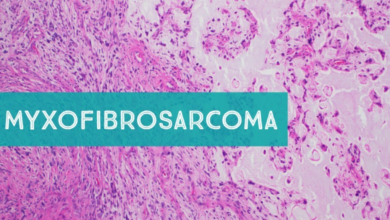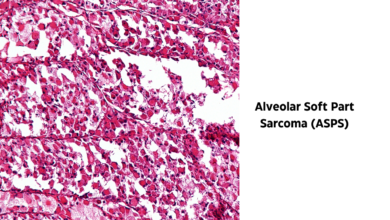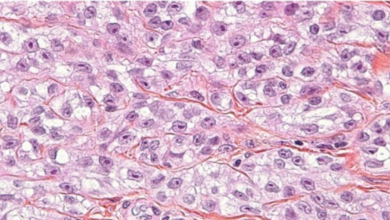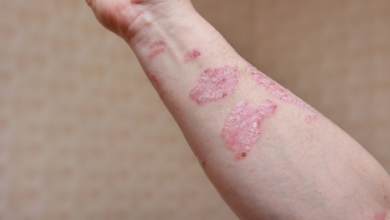
What is Fibrosarcoma?
Fibrosarcoma is a type of soft tissue sarcoma that originates from fibrous connective tissue cells. It can develop in various parts of the body, including the extremities, trunk, and head and neck.
Types of Fibrosarcoma
Fibrosarcomas can be classified based on their microscopic appearance:
• Well-differentiated fibrosarcoma: This type grows slowly and has a relatively good prognosis.
• Poorly differentiated fibrosarcoma: This type grows more aggressively and is more difficult to treat.
Symptoms of Fibrosarcoma
Symptoms of fibrosarcoma can vary depending on the location of the tumor. Common symptoms include:
• A painless lump or mass
• Swelling or bruising
• Pain or tenderness
• Limited range of motion
Causes of Fibrosarcoma
The exact cause of fibrosarcoma is unknown. However, certain factors may increase the risk, such as:
• Exposure to radiation: Previous radiation therapy can increase the risk.
• Genetic factors: Certain genetic conditions, such as Li-Fraumeni syndrome, can increase the risk.
Who Can Suffer from Fibrosarcoma?
Fibrosarcoma can affect people of all ages, but it’s more common in adults.
Diagnostic Tests for Fibrosarcoma
To diagnose fibrosarcoma, a doctor may use a combination of tests, including:
• Physical exam: To check for any lumps or masses.
• Imaging tests: X-rays, CT scans, MRIs, and PET scans can help determine the size and location of the tumor.
• Biopsy: A tissue sample is removed from the tumor and examined under a microscope.
Stages of Fibrosarcoma
The staging of fibrosarcoma helps determine the extent of the disease and guides treatment decisions. The American Joint Committee on Cancer (AJCC) staging system is commonly used.
Treatment of Fibrosarcoma
The treatment for fibrosarcoma depends on the stage and location of the tumor. Common treatment options include:
• Surgery: To remove the tumor and affected tissue.
• Chemotherapy: To kill cancer cells throughout the body.
• Radiation therapy: To kill cancer cells in a specific area.
Diet and Fibrosarcoma Prevention
While a healthy diet cannot directly prevent fibrosarcoma, it can support overall health and strengthen the immune system. Here are some general dietary recommendations:
• A balanced diet: A diet rich in fruits, vegetables, and whole grains can help.
• Limit processed foods and sugary drinks: These can contribute to weight gain and other health problems.
• Maintain a healthy weight: Obesity is linked to an increased risk of certain cancers.
Overall Survival Rate of Fibrosarcoma
The overall survival rate for fibrosarcoma varies depending on the stage, location, and specific type of the tumor. While advancements in treatment have improved outcomes, it remains a serious condition. Early detection and timely treatment are crucial for a better prognosis.
Doctor to Consult
An orthopedic oncologist or a medical oncologist specializing in soft tissue sarcomas is the best doctor to consult for fibrosarcoma.
Diseases Associated with Fibrosarcoma
Fibrosarcoma is not directly associated with other specific cancers. However, certain genetic factors and environmental exposures may increase the risk of developing fibrosarcoma.
How to Prevent Fibrosarcoma
While there’s no guaranteed way to prevent fibrosarcoma, maintaining a healthy lifestyle can reduce the risk of certain factors that may contribute to the disease:
• Limit exposure to radiation and certain chemicals: Exposure to these substances can increase the risk of certain types of cancer.
• Maintain a healthy weight: Obesity is linked to an increased risk of certain cancers.
• Regular check-ups: Regular check-ups can help detect any abnormalities early on.
• Healthy lifestyle: A healthy lifestyle, including a balanced diet and regular exercise, can help boost the immune system.





